
Find Help
More Items From Ergsy search
-
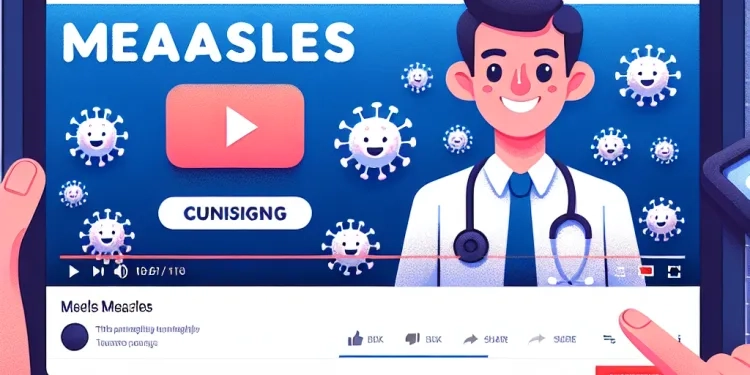
Measles
Relevance: 100%
-

Is there a treatment for measles?
Relevance: 95%
-

Is there a treatment for measles?
Relevance: 95%
-
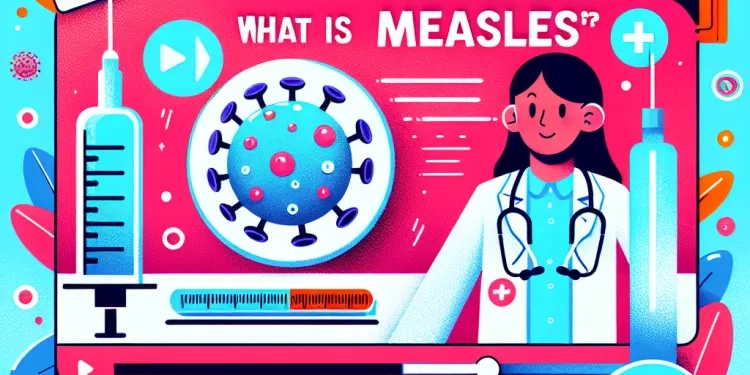
What is measles?
Relevance: 94%
-

How is measles transmitted?
Relevance: 91%
-

What are the symptoms of measles?
Relevance: 91%
-

How contagious is measles?
Relevance: 91%
-

Can measles be serious?
Relevance: 91%
-

How is measles transmitted?
Relevance: 91%
-
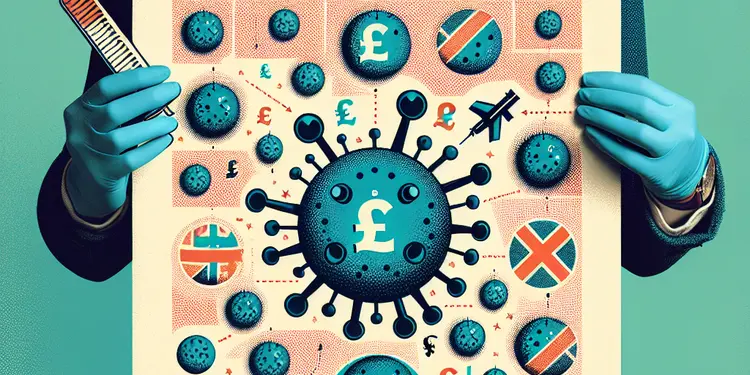
How is measles spread?
Relevance: 90%
-

Are measles outbreaks common in the UK?
Relevance: 90%
-

Can measles be treated?
Relevance: 90%
-

What are the symptoms of measles?
Relevance: 90%
-

Are measles cases rising in the UK?
Relevance: 90%
-

Is Rubella the same as measles?
Relevance: 90%
-

What are the symptoms of measles?
Relevance: 90%
-
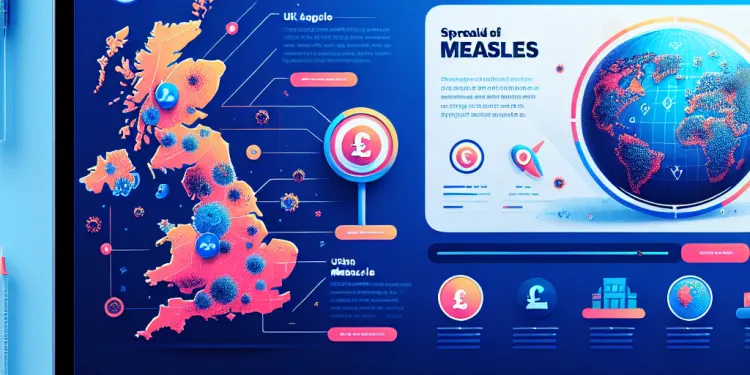
Are measles more common outside of the UK?
Relevance: 87%
-

Can measles cause complications?
Relevance: 87%
-

Are adults in the UK at risk from measles?
Relevance: 86%
-
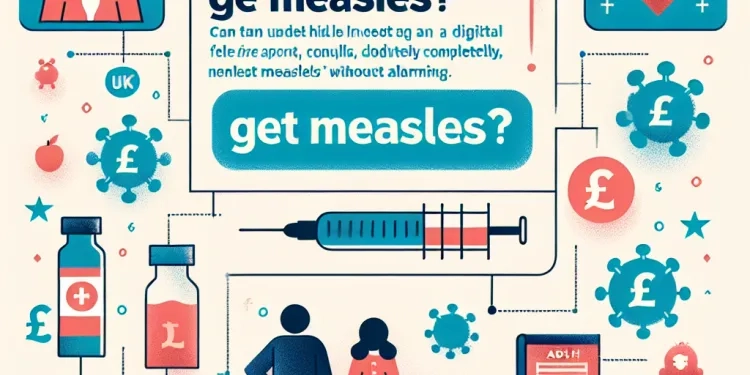
Can adults get measles?
Relevance: 86%
-

Why is measles less common in the UK?
Relevance: 86%
-
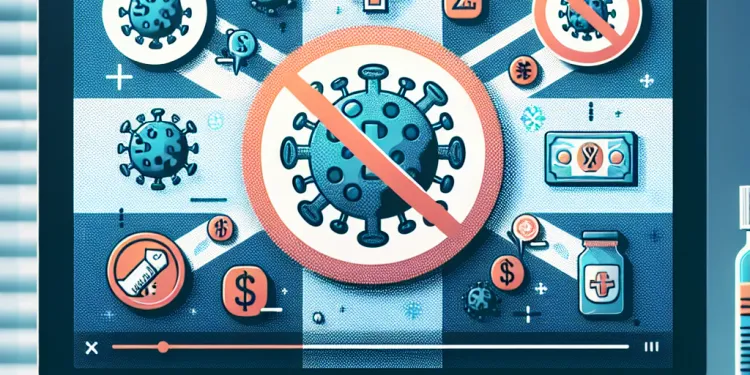
How can measles be prevented?
Relevance: 86%
-

Are measles cases currently rising in the UK?
Relevance: 86%
-
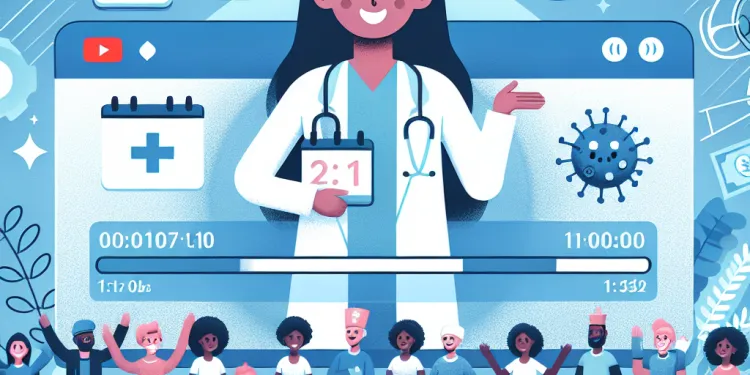
How long is a person with measles contagious?
Relevance: 84%
-
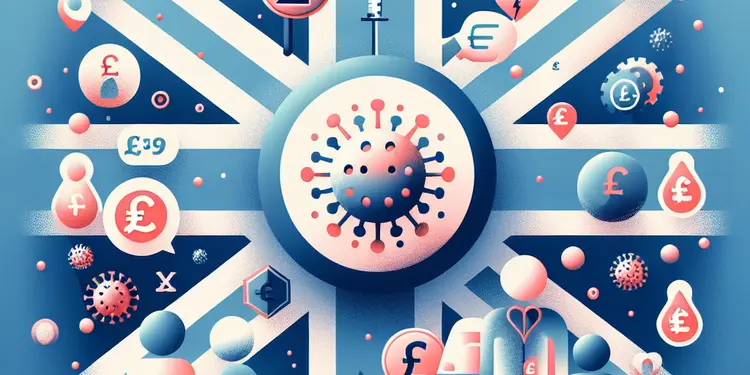
Who is most at risk from measles?
Relevance: 84%
-
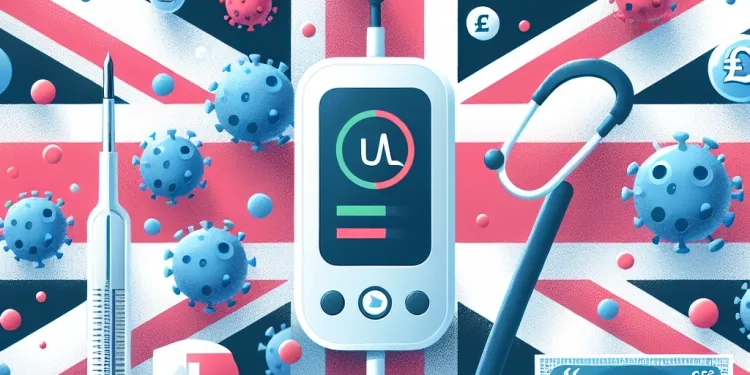
What should I do if I suspect I have measles?
Relevance: 84%
-

How does the UK monitor measles outbreaks?
Relevance: 84%
-

Why are measles outbreaks still occurring?
Relevance: 84%
-

What is causing the rise in measles cases in the UK?
Relevance: 83%
-
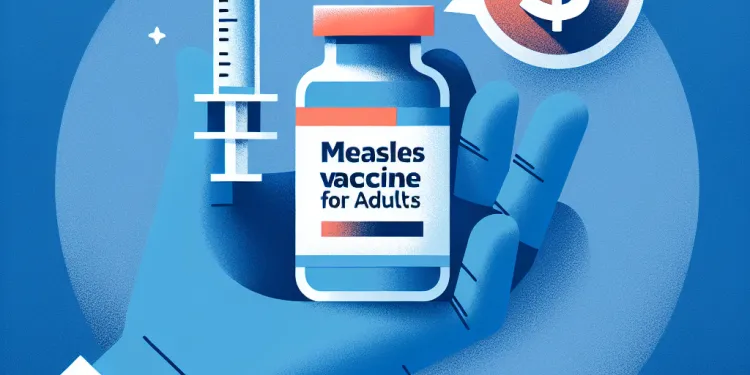
Can the measles vaccine be given to adults?
Relevance: 83%
-
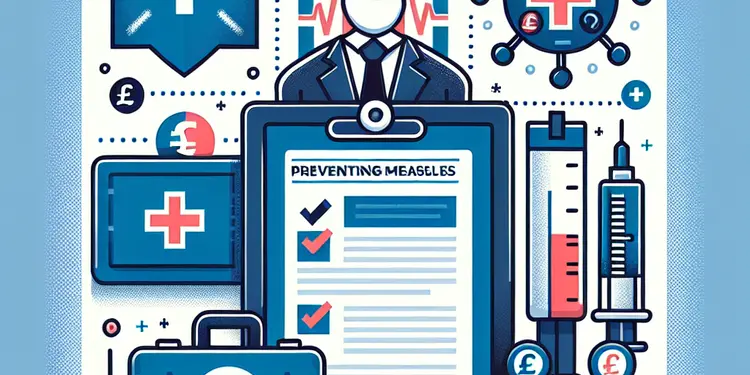
How can measles outbreaks be prevented?
Relevance: 83%
-

What complications can arise from measles?
Relevance: 82%
-

Which countries have higher rates of measles?
Relevance: 82%
-
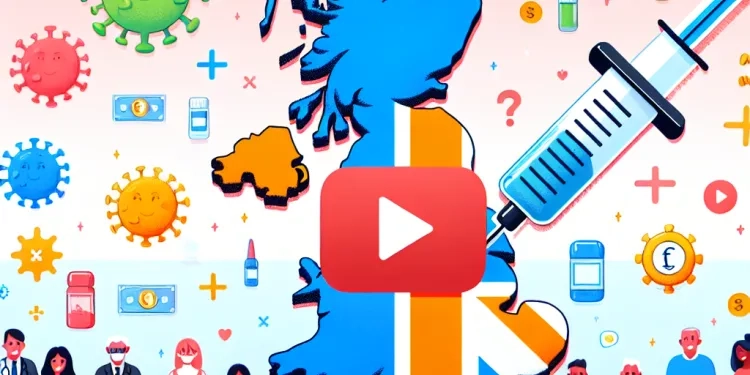
What is the current measles vaccination coverage in the UK?
Relevance: 82%
-

How does vaccination affect measles rates?
Relevance: 81%
-

Is there a risk of global spread if measles cases rise in the UK?
Relevance: 81%
-

Is it necessary to get a measles vaccine before travelling?
Relevance: 81%
-
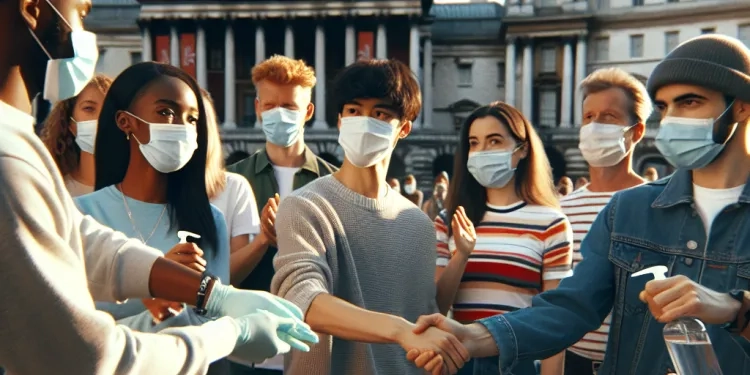
What should you do during a measles outbreak?
Relevance: 80%
-

Why has the UK lost its measles elimination status?
Relevance: 80%
-
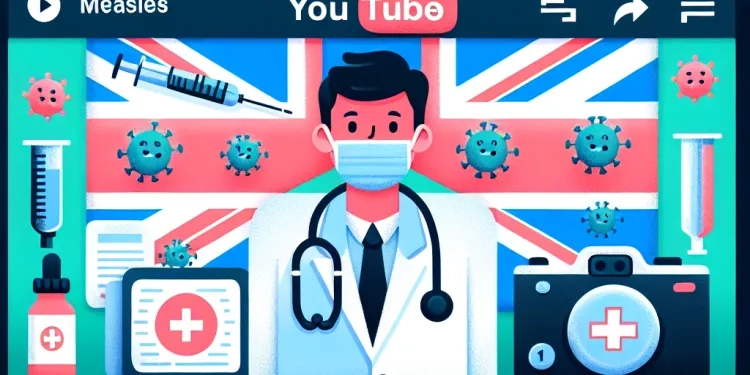
Can you get measles more than once?
Relevance: 79%
Why is Measles Less Common in the UK?
Vaccination Programs
The United Kingdom has effective vaccination programs that significantly contribute to the low incidence of measles. The introduction of the Measles, Mumps, and Rubella (MMR) vaccine in the late 1980s has dramatically curbed the spread of measles. The MMR vaccine is administrated routinely to children, providing immunity and reducing the chances of outbreaks. High vaccine coverage is essential for maintaining herd immunity, which protects even those who are unvaccinated.Public Health Campaigns
Public health campaigns in the UK raise awareness about the importance of vaccinations. These campaigns counter misinformation and encourage parents to vaccinate their children. By providing reliable information through healthcare providers and educational materials, the UK ensures that communities understand the benefits and safety of the MMR vaccine, further increasing vaccination rates.Surveillance and Response
The UK has robust surveillance systems in place for monitoring measles cases. Public health authorities can quickly identify and respond to outbreaks, minimizing their impact. By tracking cases and ensuring quick isolation and treatment of infected individuals, the spread of measles is kept under control. This vigilance is crucial in maintaining public health.School Vaccination Requirements
School vaccination requirements in the UK help maintain high vaccination rates among children. Schools often require proof of vaccination for enrollment, ensuring that most children receive the MMR vaccine. This policy not only protects students but also reduces the risk of measles outbreaks in schools, where the disease can spread rapidly.Global Cooperation
Global cooperation and communication with organizations such as the World Health Organization (WHO) help the UK maintain its low measles rates. Collaborative efforts ensure that emerging threats are addressed promptly and that the UK can learn from successful strategies implemented in other countries. International cooperation strengthens the UK's ability to protect its population from measles. By maintaining high vaccination coverage, running effective public health campaigns, and utilizing strong surveillance and response systems, the UK successfully keeps measles cases low, ensuring the health and safety of its population.Why is Measles Less Common in the UK?
Vaccination Programs
In the UK, there are good programs for vaccination. This means fewer people get measles. Children get a special vaccine called MMR to protect them from measles. This vaccine helps stop the spread of measles. When lots of people get the vaccine, it protects everyone as a group, even those not vaccinated.Public Health Campaigns
In the UK, there are public health campaigns. These teach people why vaccines are important. They give good information to families, so they understand the MMR vaccine is safe. This makes more people get the vaccine.Surveillance and Response
The UK watches for cases of measles. When there is a case, they act quickly to stop it from spreading. They make sure people who have measles get help fast. This careful watching and quick action keep people safe.School Vaccination Requirements
Schools in the UK often ask for proof of vaccination when children start school. This means most kids get the MMR vaccine. It helps keep schools safe from measles.Global Cooperation
The UK works with other countries and groups like the World Health Organization (WHO). They share information and learn from each other to keep measles rates low. In the UK, vaccines, public health information, and quick action all help to keep measles cases low. This keeps people healthy and safe.Frequently Asked Questions
Why is measles less common in the UK?
Measles is less common in the UK primarily due to widespread vaccination with the MMR (measles, mumps, and rubella) vaccine, which provides effective immunity against the virus.
What role does vaccination play in preventing measles in the UK?
Vaccination plays a crucial role in preventing measles by creating herd immunity, reducing the chances of outbreaks and protecting those who cannot be vaccinated.
What is herd immunity and how does it relate to measles?
Herd immunity occurs when a high percentage of the population is vaccinated, reducing the spread of the virus and protecting those who are not immune, such as infants or people with certain health conditions.
Is measles vaccination mandatory in the UK?
While measles vaccination is not mandatory by law in the UK, it is highly recommended by health authorities and is included in the NHS routine childhood vaccination schedule.
How effective is the MMR vaccine against measles?
The MMR vaccine is highly effective, with about 97% protection against measles after two doses.
At what age is the MMR vaccine administered in the UK?
In the UK, the first dose of the MMR vaccine is typically given to children at around 12 to 13 months old, with a second dose before starting school, usually at 3 years and 4 months.
What are the symptoms of measles?
Measles symptoms include fever, cough, runny nose, red eyes, and a characteristic red rash that usually starts on the face and spreads to the rest of the body.
Why is vaccination important for preventing measles complications?
Vaccination is important because measles can lead to serious complications, such as pneumonia, encephalitis, and death, especially in young children and immunocompromised individuals.
How has the rate of measles in the UK changed over time?
The rate of measles in the UK has significantly decreased since the introduction of the MMR vaccine in 1988, although occasional outbreaks still occur, usually linked to low vaccination coverage.
What measures are taken during a measles outbreak in the UK?
During a measles outbreak, public health officials may increase vaccination efforts, raise awareness about the disease, and trace and isolate cases to prevent further spread.
Can adults receive the MMR vaccine?
Yes, adults who haven't been vaccinated or are unsure of their vaccination status can receive the MMR vaccine to protect themselves against measles, mumps, and rubella.
How does global travel affect measles in the UK?
Global travel can introduce measles into the UK from regions where the virus is more prevalent, highlighting the importance of maintaining high vaccination coverage domestically.
What challenges exist in maintaining measles control in the UK?
Challenges include vaccine hesitancy, misinformation, and ensuring high coverage in all communities to prevent outbreaks.
Are there any contraindications for the MMR vaccine?
The MMR vaccine is generally safe, but it may not be suitable for people with severe allergies to components of the vaccine or those with weakened immune systems.
What should one do if they suspect measles exposure?
If you suspect exposure to measles, contact your GP or local health services immediately for advice and avoid exposing others, especially vulnerable individuals.
Why don't many people get measles in the UK?
In the UK, not many people catch measles because most people get a special medicine called a vaccine. This vaccine helps stop people from getting measles.
Getting the vaccine makes you strong against the measles germs.
If you want help to read more, you can use tools like text-to-speech to hear the words or pictures to help you understand better.
Measles is not very common in the UK because most people get a vaccine called the MMR vaccine. This vaccine helps protect against measles, mumps, and rubella. It works really well to keep people safe from getting sick.
How do vaccines stop people from getting measles in the UK?
Vaccines are like a shield that helps keep people safe from diseases like measles. In the UK, getting a vaccine for measles helps stop people from getting sick and also helps prevent the disease from spreading to others.
Here are some ways to make sure you don't miss getting your vaccines:
- Ask the doctor or nurse when it is time for your vaccine.
- Keep a note or a calendar to remember the dates.
- If you are unsure or have questions, talk to a healthcare professional. They can help!
Remember, getting a vaccine is an important step to stay healthy and protect others too.
Getting a vaccine can stop people from getting measles. It helps keep everyone safe by making lots of people strong against the illness. This means there's less chance of a lot of people getting sick, and it helps protect people who can't get the vaccine.
What is herd immunity and how does it relate to measles?
Why do lots of people getting a shot help stop measles?
If most people have a shot to stop measles, it is hard for measles to spread. This is called "herd immunity."
"Herd" means a big group, like a group of cows. Here, "herd" is a big group of people.
If the big group is safe from measles, people who cannot have the shot are safer too.
Tools to help:
- Draw pictures: Show people getting a shot and stopping measles from spreading.
- Use videos: Watch cartoons that explain herd immunity.
Herd immunity happens when lots of people get a vaccine. This makes the virus spread less. It helps keep safe the people who can't get the vaccine, like babies or people who are sick.
Do kids have to get the measles vaccine in the UK?
In the UK, you don't have to get the measles vaccine by law. But doctors and health experts strongly suggest you get it. It is part of the regular shots that kids get when they are young on the NHS.
How well does the MMR vaccine stop measles?
The MMR vaccine helps protect you from measles. It is a strong shield that helps keep you safe.
This vaccine works really well to stop measles. Most people who get the MMR vaccine do not get measles.
If you find reading hard, ask someone to read this to you. Use videos or pictures about the MMR vaccine to learn more.
The MMR vaccine works really well. After you get two shots, it can stop 97 out of 100 people from getting measles.
When do children in the UK get the MMR shot?
Children in the UK get the MMR shot two times.
The first shot is around 1 year old.
The second shot is when they are 3 to 4 years old.
Tip: Use a calendar to help remember when shots are due.
In the UK, babies get their first MMR shot when they are 12 to 13 months old. They get a second shot before they go to school, at about 3 years and 4 months old.
What happens when you have measles?
If you have measles, you might feel sick. You could get a fever, which is when your body feels hot. You might cough and have a runny nose. Your eyes might look red. You will also get a red rash that starts on your face and spreads to the rest of your body.
Why is vaccination important to stop measles problems?
Getting a vaccine helps to stop you from catching measles. If you don’t get measles, you won’t get sick from it.
Sometimes, measles can make people very sick. The vaccine stops this from happening.
If you have trouble reading, you can try asking someone for help or using a tool that reads out loud.
Getting a vaccine is important. It helps protect you from a sickness called measles. Measles can make you very sick. It can cause big problems like lung infection, brain swelling, and can even be fatal. This is especially true for young kids and people who have weak immune systems.
How has measles in the UK changed over time?
Let's look at how many people get measles in the UK.
Measles is a sickness. It can make you feel very bad.
Years ago, more people got measles. Now, fewer people get it.
Vaccines help stop measles. Vaccines are a type of medicine.
Ask an adult or a doctor if you want to know more about measles.
Measles cases in the UK have gone down a lot since the MMR vaccine started in 1988. But sometimes there are still small outbreaks when not enough people get the vaccine.
What happens when there is a measles outbreak in the UK?
When there is a measles outbreak, there are steps to keep people safe.
- Doctors work to find out who has measles.
- People who are sick may need to stay home.
- Friends and family may be told to watch for signs of measles.
- More people might get a special medicine called a vaccine.
If you want help to understand, you can ask someone to read with you or use pictures to learn more.
When lots of people get measles, health workers try to stop it from spreading. They might give more vaccines, tell people about measles, and find and keep sick people away from others.
Can grown-ups get the MMR shot?
Yes, grown-ups can get the MMR shot.
The MMR shot helps stop you from getting three sicknesses: measles, mumps, and rubella.
If you did not get the MMR shot when you were young, talk to your doctor. They can help you get the shot now.
You can ask someone you trust, like a family member or friend, to help you understand more about the MMR shot.
Yes, grown-ups who haven't had the MMR shot or don't know if they have can get the MMR shot. This will help keep them safe from measles, mumps, and rubella.
How does travel around the world change measles in the UK?
People beeping around the world can spread germs.
One germ is called measles. It can make you sick.
When people travel, they can bring measles to new places like the UK.
In the UK, some people do not have the measles vaccine.
If someone with measles visits, more people can catch it.
To stay safe, get the measles shot. This helps stop the spread.
Use pictures or videos to learn more. Ask a helper if you need it.
People travel to the UK from all over the world. This can bring diseases like measles from places where it's more common. That's why it's important for everyone in the UK to get their measles vaccination. Getting vaccinated helps keep everyone safe from measles.
What makes it hard to stop measles in the UK?
Here are some things that make it tricky to stop measles:
- Not everyone gets the measles vaccine, so more people can get sick.
- Measles spreads very easily from one person to another.
- Some people travel from places where measles is more common, bringing it with them.
To help, people can use reminders to get vaccines and learn more about why vaccines are important.
There are some problems we need to solve. Some people are worried about getting vaccines, and there is a lot of wrong information about them. We also need to make sure everyone gets vaccines to stop people from getting sick.
Is the MMR vaccine safe for everyone?
The MMR vaccine helps keep you safe from measles, mumps, and rubella.
Some people should not get this vaccine. Talk to your doctor if you:
- Are allergic to the ingredients in the vaccine.
- Are pregnant.
- Have a weak immune system.
If you are not sure, ask your doctor or nurse for advice.
The MMR vaccine is usually safe for most people. But some people should not have it. If someone is very allergic to something in the vaccine or if their body cannot fight germs well, the vaccine might not be good for them.
If you have trouble understanding this, try reading it slowly, ask someone to help explain, or use a dictionary if you find a word hard.
What to do if you think you have been near someone with measles?
Measles is a sickness. It can make people very sick. If you think you might have been near someone with measles, here is what to do:
- Tell an adult or a caregiver. They can help you.
- Go see a doctor. The doctor can check if you have measles.
- Stay away from other people. This helps stop measles from spreading.
- Wash your hands often. This keeps you and others healthy.
If reading is hard, you can:
- Ask someone to read to you.
- Look at pictures to help understand.
- Use a computer or tablet to listen to the information.
If you think you have been near someone with measles, call your doctor or local health services right away. They can tell you what to do. Do not go near other people, especially those who might get very sick if they catch it.
Useful Links
This website offers general information and is not a substitute for professional advice.
Always seek guidance from qualified professionals.
If you have any medical concerns or need urgent help, contact a healthcare professional or emergency services immediately.
Some of this content was generated with AI assistance. We’ve done our best to keep it accurate, helpful, and human-friendly.
- Ergsy carfully checks the information in the videos we provide here.
- Videos shown by Youtube after a video has completed, have NOT been reviewed by ERGSY.
- To view, click the arrow in centre of video.
- Most of the videos you find here will have subtitles and/or closed captions available.
- You may need to turn these on, and choose your preferred language.
- Go to the video you'd like to watch.
- If closed captions (CC) are available, settings will be visible on the bottom right of the video player.
- To turn on Captions, click settings .
- To turn off Captions, click settings again.
More Items From Ergsy search
-

Measles
Relevance: 100%
-

Is there a treatment for measles?
Relevance: 95%
-

Is there a treatment for measles?
Relevance: 95%
-

What is measles?
Relevance: 94%
-

How is measles transmitted?
Relevance: 91%
-

What are the symptoms of measles?
Relevance: 91%
-

How contagious is measles?
Relevance: 91%
-

Can measles be serious?
Relevance: 91%
-

How is measles transmitted?
Relevance: 91%
-

How is measles spread?
Relevance: 90%
-

Are measles outbreaks common in the UK?
Relevance: 90%
-

Can measles be treated?
Relevance: 90%
-

What are the symptoms of measles?
Relevance: 90%
-

Are measles cases rising in the UK?
Relevance: 90%
-

Is Rubella the same as measles?
Relevance: 90%
-

What are the symptoms of measles?
Relevance: 90%
-

Are measles more common outside of the UK?
Relevance: 87%
-

Can measles cause complications?
Relevance: 87%
-

Are adults in the UK at risk from measles?
Relevance: 86%
-

Can adults get measles?
Relevance: 86%
-

Why is measles less common in the UK?
Relevance: 86%
-

How can measles be prevented?
Relevance: 86%
-

Are measles cases currently rising in the UK?
Relevance: 86%
-

How long is a person with measles contagious?
Relevance: 84%
-

Who is most at risk from measles?
Relevance: 84%
-

What should I do if I suspect I have measles?
Relevance: 84%
-

How does the UK monitor measles outbreaks?
Relevance: 84%
-

Why are measles outbreaks still occurring?
Relevance: 84%
-

What is causing the rise in measles cases in the UK?
Relevance: 83%
-

Can the measles vaccine be given to adults?
Relevance: 83%
-

How can measles outbreaks be prevented?
Relevance: 83%
-

What complications can arise from measles?
Relevance: 82%
-

Which countries have higher rates of measles?
Relevance: 82%
-

What is the current measles vaccination coverage in the UK?
Relevance: 82%
-

How does vaccination affect measles rates?
Relevance: 81%
-

Is there a risk of global spread if measles cases rise in the UK?
Relevance: 81%
-

Is it necessary to get a measles vaccine before travelling?
Relevance: 81%
-

What should you do during a measles outbreak?
Relevance: 80%
-

Why has the UK lost its measles elimination status?
Relevance: 80%
-

Can you get measles more than once?
Relevance: 79%


